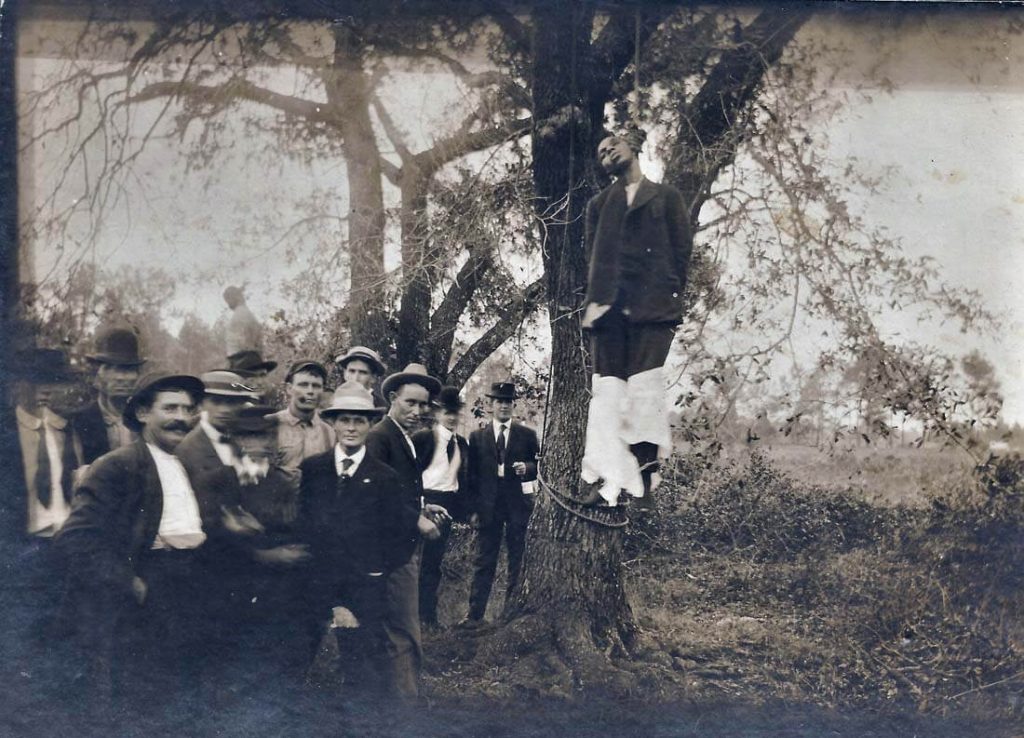Blog Post
Recognizing the real pain and anger in the black community is part of the path to healing, peace
By Jonathon Van Maren
This column was first published on June 15, 2020
“We are not makers of history,” Martin Luther King Jr. told his congregation in 1954, “we are made by history.” King, of course, would in the years ahead, with all his flaws, become a maker of history, too—and precisely because he understood that both his civil rights movement and those they faced off with on the streets from Birmingham to Chicago were shaped by their respective pasts. If one didn’t understand that, one understood nothing.
As America’s racial tensions are roiled once again, one viral video that made the rounds recently gave voice to the historical grievances of many African Americans. Tweeted by activist Matthew A. Cherry and retweeted by Twitter CEO Jack Dorsey, it showed black author Kimberly Jones (author of I’m Not Dying With You Tonight) wearing a George Floyd shirt, raging with grief and anger. She is standing in front of a building covered in graffiti, speaking to the camera, running through a litany of historical grievances: “You broke the contract when you killed us in the streets…You broke the contract for 400 years.”
My instinct on hearing that is to immediately recoil from the seeming advocacy of violence. When my editor sent it to me, he noted that “as I was watching the video, it’s obviously deeply problematic and dangerous, but at the same time, I felt there was righteous anger being expressed.” I think that’s precisely right. When you listen to Jones closely, she isn’t so much advocating for violence as a practical means of protest so much as channelling the pain of the black community, the dry powder of hundreds of years of oppression sparked by the match of George Floyd’s killing. It is also a powerful reminder that those who have no vested interest in the system are much less likely to share common cause with those who do.
It is easy to look at where anger has taken us and to condemn anger, without seeking to understand where that anger comes from. That is a complicated question, with many answers. One of them is that there are grifters and political carpetbaggers and race-baiters who are deliberately stoking anger for perceived gain. But I’d like to focus on one source of that anger that all of us should understand: History.
I must note here that I am fully aware that the rioting on the streets last year in many cases had nothing to do with George Floyd. I wrote a column noting that the protestors often tried in vain to stop Antifa infiltrators and others from hijacking the legitimate expression of their grievances, and I’ve explained—to much backlash—why I cannot support the anti-Christian positions of the organization Black Lives Matter (not the slogan, mind you, the organization.) I’m aware that it is nearly impossible to write anything about what is going without provoking rage from one side or the other. But it would be a big mistake not to realize that while ideology plays a part in how we understand events, history is a far more powerful molder of persons—ideology is a hanger-on, exploiting what is already there.
As a traditionalist and conservative person, I believe that without knowing our history, we cannot understand our present. People are not merely individuals, floating in a vast sea of other atomized individuals, coming from nowhere and heading nowhere. We are the products of our families, our environments, our communities, and our shared experiences. Many conservatives like to note that we have come far on issues of racial injustice, and that is obviously true. But let’s think about it more deeply for a moment.
Imagine if your father had been the victim of Jim Crow laws? Imagine if your father had been routinely infantilized and humiliated by those of a different skin color than him, forced to endure it because the status quo was often enforced by violence? This is not so very long ago. The last lynching of an African American by the KKK was in Mobile, Alabama on March 21, 1981. For many of us, the civil rights era is history. For many of those expressing their pain right now, this is the lived experience of their families.
Hundreds of thousands of people alive today can recall this period with vivid pain. To them, law enforcement was often the tool of injustice. This is accepted by all as historical fact, but we often seem to think that those who endured this injustice, and their children and grandchildren who suffer the after-effects and hear the stories as their family history, can simply shrug it off and pretend that none of it happened. Would you be able to do that if it was your family? If it was those you loved the most? I doubt I would be able to. This is not to advocate for anger. It is simply to explain why it is there.
A few years ago, I interviewed 95-year-old George Walker, the first African American to win the Pulitzer Prize for music (he has since passed away.) He told me that when he was a boy, his aged grandmother had told him stories—about being a slave on a Southern plantation. “What did she tell you?” I asked him. “She said: They did everything but eat us,” he told me. It struck me that I was on the phone, speaking with an old man who had heard, first-hand, what slavery was like—from his beloved grandmother. “The past isn’t dead,” William Faulkner once wrote. “It’s not even past.”
Nobody should understand that better than a conservative.
I’ll reiterate that none of this is saying that injustice calls for violent revolution, or that past sins are an excuse for present ones. I think that a better understanding of history would inoculate us from some of the radical proposals being put forward right now, not make us more susceptible to them. And as I noted in my column on the riots, the present situation calls for revival, not revolution. But we should be aware of the historical context for all of this, and we should be aware that history echoes forward in time, not just backwards. Many black Christians came forward and explained how they saw George Floyd’s death from their perspective, and we should read their stories.
Nobody should be aware of injustice than Christians, and nobody should be more steeped in history than traditionalists and conservatives. We cannot simply pretend rage doesn’t exist. We can seek to understand where it comes from.









Such a refreshing column to see from the Christian conservative sphere. Too often when I see Christian conservatives comment on racial matters, it’s to reject the BLM movement as a whole and the legitimate pain black communities continue to experience. We need to acknowledge that there is a basis for their anger and work to respond to it, because passing it all off as SJW nonsense isn’t helping anyone.